Bio dyes
For bio dyes, I used animal, protein fibre (80% wool, 20% silk) and vegetable, cellulose fibre (100% cotton) bases. The mordant that I used was Tartaric Acid with hibiscus die, and acidic apple vinegar modifier, with time as a variable as well.
- It is important to label each fibre. I used a waterproof plasticized labeler
- Important to weight the fibres, and take an average to later measure the amount od mordant to put in
FOR COTTON:
- Boil the 8 fibre strips for an hour in the wash with 1 spoon of baking soda.
- I separated half to put in a boiling water with 6% of the net weight (0.135g of Tartaric Acid in 500mL of water)
- Due to transport, I added the dye after 2 days. I boiled water and then letter it simmer on the hibiscus (around 100mL in half a cup of hibiscus flowers) for 30 minutes. Then I added the fibres and let them simmer for 45 minutes and afterwards left them overnight.
- After 14 hours I removed half
- After 20 hours I removed the other half
- I got half of those, and simmered them in 4 spoons of apple vinegar for 5 minutes, with the hibiscus liquid.
FOR WOOL/SILK:
- I washed the fibres gently with lukewarm water from the tap, and a little bit of detergent.
- I separated half to put in a boiling water with 6% of the net weight (0.105g of Tartaric Acid in 500mL of water)
- Due to transport, I added the dye after 2 days. I boiled water and then letter it simmer on the hibiscus (around 100mL in half a cup of hibiscus flowers) for 30 minutes. Then I added the fibres and let them simmer for 45 minutes and afterwards left them overnight.
- After 14 hours I removed half
- After 20 hours I removed the other half
- I got half of those, and simmered them in 4 spoons of apple vinegar for 5 minutes, with the hibiscus liquid.
-when putting in the dyes, all the fibres were in the same boiling container
Results for Bio Dyes
14 (14 hours), 20 (20 hours), V (vinegar as modifier), M: (mordant added). Mordant is Tartaric Acid
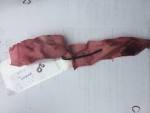 cotton 20
cotton 20 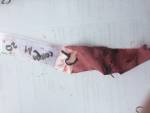 cotton M 20
cotton M 20 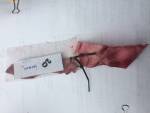 cotton V 20
cotton V 20  cotton V M 20
cotton V M 20
 cotton 14
cotton 14  cotton M 14
cotton M 14 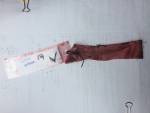 cotton V 14
cotton V 14  cotton V M 14
cotton V M 14
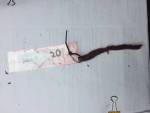 wool 20
wool 20 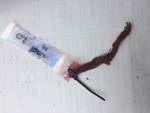 wool M 20
wool M 20 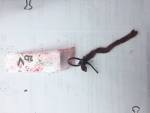 wool V 20
wool V 20 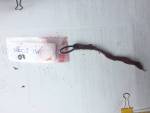 wool V M 20
wool V M 20
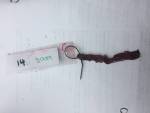 wool 14
wool 14 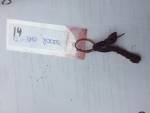 wool M 14
wool M 14 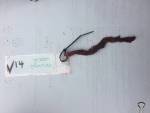 wool V 14
wool V 14  wool V M 14
wool V M 14
Biopolymer
Ingredients: 1 L of milk
- 1 litre of milk is brought to boiling point
- 4 splashes of vinegar are added after boiling
- Silicon spray is put in the plastic petri dishes (this allows for no stick)
- For colorants: turmeric (1:1 ratio with water), 2g of glycerol were added in a full petri dish, 12 g of paprika (in 15ml of water), and completely covered onion skin
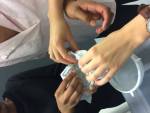
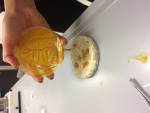
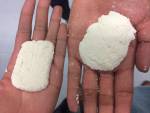
Results for Biopolymer
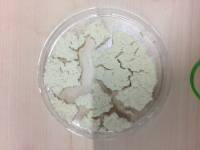
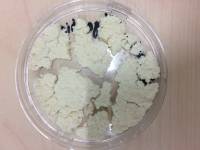
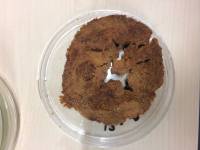
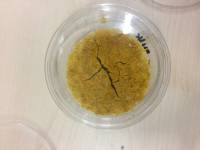
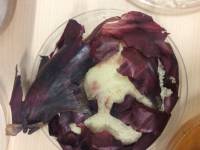
From left to right: control, with glycerol, paprika, curcuma, onion peel
The texture was the same in all of them: grainy, very brittle
In my final project I will look into bioplastics, therefore more of myr recipes will be found on that wiki page: http://wiki.textile-academy.org/fabricademy2017/students/ronga.elisa/week1333